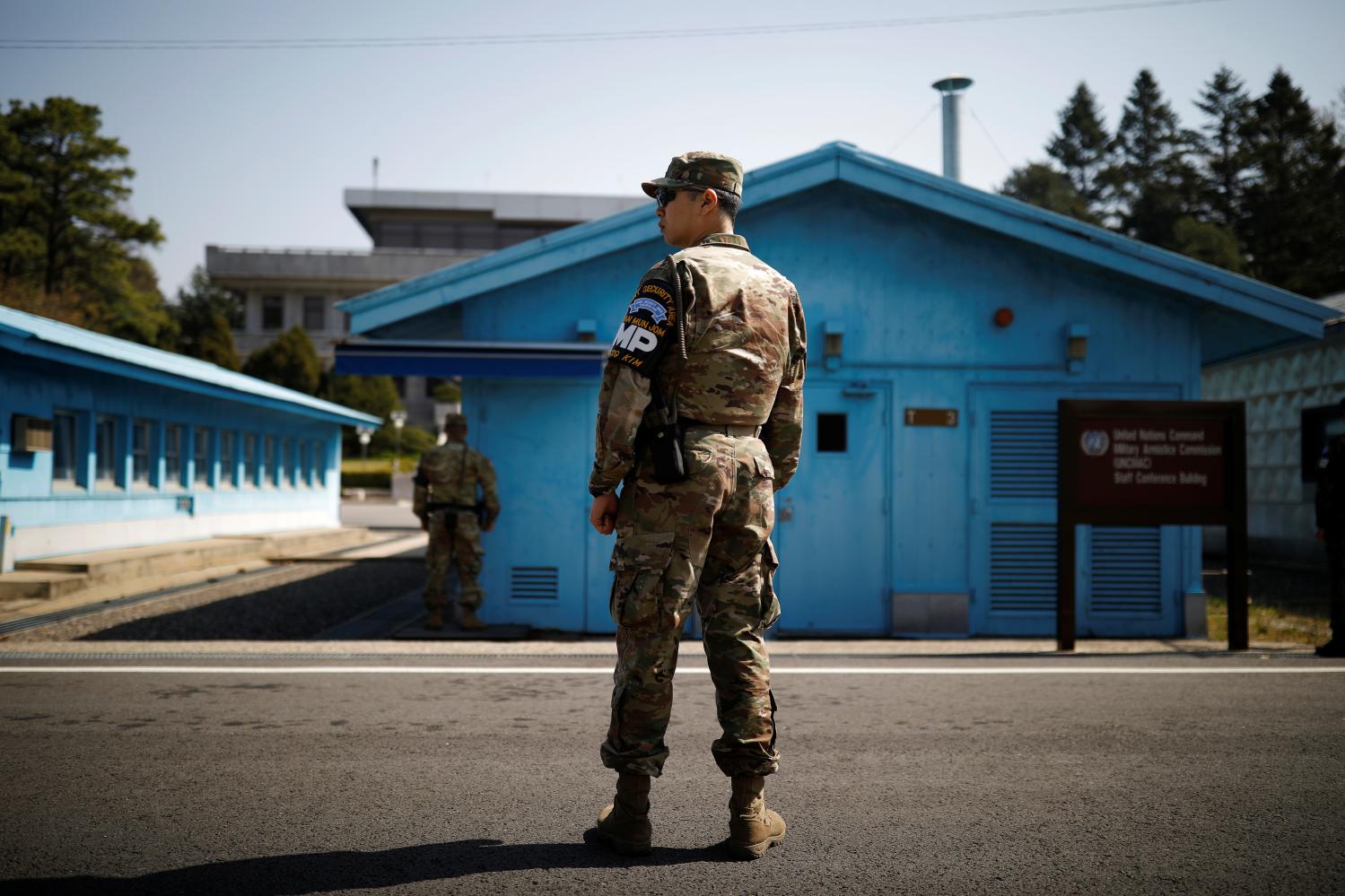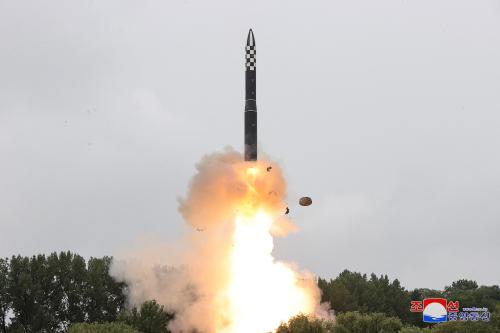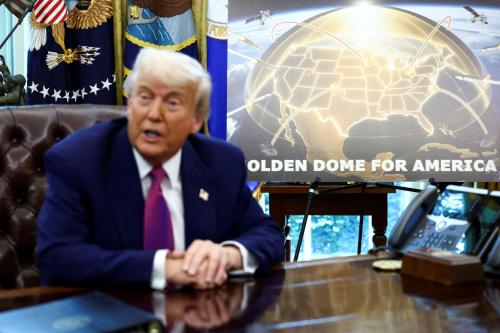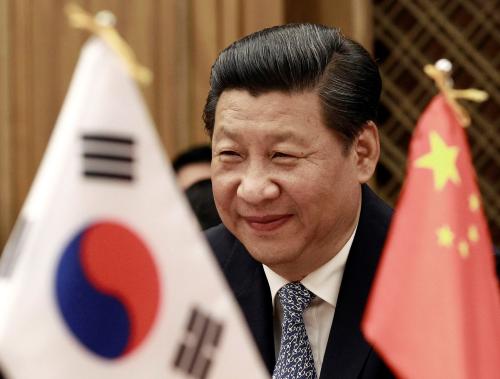This paper was presented at the 7th Brookings-Korea Research Institute for National Strategy (KRINS) joint conference, “Working at Cross Purposes? New Challenge to the Alliance in Negotiating with North Korea,” in Seoul on January 16, 2019.
Executive Summary
Almost exactly one year ago, on January 18, 2018, Donald Trump met with his senior national security advisors to talk about the value of alliances. This was only the latest discussion – or argument – that he had with his team on this subject. This time, Trump asked rhetorically at one point, “What do we get by maintaining a massive military presence on the Korean Peninsula?”
For those of us who value the ROK-U.S. alliance without question, Trump’s query may come as a surprise. Actually, it should not be. Trump’s beliefs on U.S. external policy were formed over thirty years ago, and they were outside the American mainstream. He believed, and apparently still believes, that our closest allies and partners are “cheating” America on trade and free-riding on the U.S. security commitment.
Let me be clear. In my humble opinion, Mr. Trump’s views were wrong when he formulated them and are wrong today. Fortunately, the President’s national security team has understood that alliances and forward deployment have been a critical element U.S. national security strategy since the late 1940s. They have understood that the value of alliances cannot be measured using the sort of simplistic quantitative measures that President Trump uses. What quantitative value, after all, can we place on shared sacrifice? All of this is true of the ROK-U.S. alliance. Unfortunately, Trump has no such understanding. James Mattis resigned and then was fired as Secretary of Defense in part because he and Mr. Trump disagreed so profoundly with him on the centrality of alliances to American security strategy.
Even when allies agree on the identity of the adversary state, as Washington and Seoul have agreed regarding North Korea; and that even when the adversary poses an existential challenge to the target state, building adequate deterrence is hard work. Through the Combined Forces Command, strong public support, and a shared vision by our past political leaders, our alliance has done that hard work. I am inclined to believe that North Korean leaders understand that our combined capabilities are robust, and that our clear and common intention to resist aggression if, God forbid, deterrence fails is highly credible. We should not take for granted the success of our alliance in avoiding a second Korean War.
At the same time, we should not automatically assume that North Korea will forever have evil intentions toward the ROK. At least hypothetically, we should remain open to the possibility that leaders in Pyongyang might conclude that Seoul and Washington have won the long, twilight struggle and that they should revise North Korea’s grand strategy and place relations with Seoul and Washington on a new, not-hostile, basis. At times, such a change in policy by Pyongyang has been hard to imagine but we can’t rule it out. (Actually, the possibility that DPRK leaders would change direction in this way has been the premise of efforts like the Six-Party Talks.)
Therefore, our alliance must be prepared to win the peace – if peace is possible – just as it has learned to deter war. If you will, it must be prepared to pivot for peace. It must make that pivot with skill, because taking risks for peace can sometimes be more difficult that deterring war. It requires a common view of the adversary’s intentions – that is, whether it seriously wants peace or is just engaged in deception. It requires a shared strategy for defining and deploying concessions needed to induce concessions by the other side. The fear of abandonment that infects an alliance designed for defense also plagues an alliance that tries to pivot to peace-making. In the 1970s, the leaders of South Vietnam and Taiwan were profoundly disappointed in how the United States tried to build peace with North Vietnam and China.
To return to my opening point, it is a lot harder for our alliance to pivot to peace when the President of the United States has his own peculiar views of the value of our alliance and how to set the terms for peace. It is even more difficult when political leaders in both Washington and Seoul have similar views about setting the balance point between deterrence and peace, views that are different from those of their national security establishments.
The Brookings Institution is committed to quality, independence, and impact.
We are supported by a diverse array of funders. In line with our values and policies, each Brookings publication represents the sole views of its author(s).







